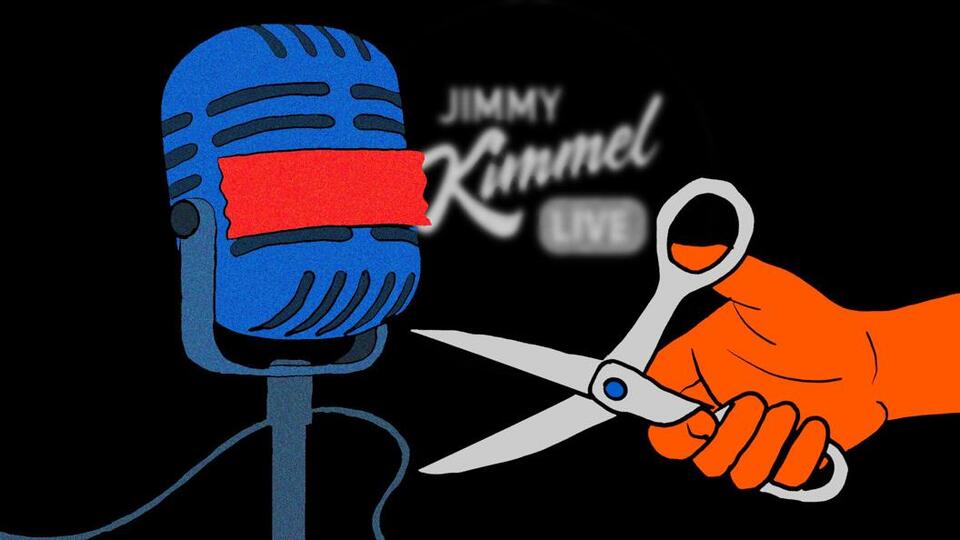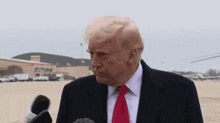You are using an out of date browser. It may not display this or other websites correctly.
You should upgrade or use an alternative browser.
You should upgrade or use an alternative browser.
Are we now officially in a dictatorship?
- Thread starter str8line
- Start date
fishonjazz
Well-Known Member
Contributor
2018 Award Winner
2019 Award Winner
20-21 Award Winner
2022 Award Winner
2023 Award Winner
2024 Award Winner
2025 Award Winner
LOLOLOLOLOOLOLOL
As much as I hate trump and as bad as I think he is, he does make me laugh sometimes.
Sent from my OPD2203 using Tapatalk
PJF
Well-Known Member
Once again, so nice to have adults back in charge. Were you guys even aware that the FBI was doing these things under Biden? I'm sure the answer is no.
View: https://x.com/EricLDaugh/status/1968334714860974158?t=nZghFmyQRTM0BnjDf9sRAg&s=19
View: https://x.com/EricLDaugh/status/1968334714860974158?t=nZghFmyQRTM0BnjDf9sRAg&s=19
Last edited:
Every day a step closer at this point
PJF
Well-Known Member
We are on the verge of a complete mainstream media takeover
PJF
Well-Known Member
Best thing you've ever said.We are on the verge of a complete mainstream media takeover
Red
Well-Known Member
ABC is a collaborator. $$$ is far more important than preserving democracy in America. But, surely, we already knew that, correct? We knew money would always be priority #1. Even if it means terminating our 250 year old experiment in self governance, terminating preserving the Rights of Man. Surely we knew such high principles didn’t stand a chance when $$$ was at stake. Screw democracy in America.

 theconversation.com
theconversation.com
History’s path is never linear. But its turns can be very sharp.
It is rare to be able to identify the moment when we can say “this is the point at which everything changed”.
So have we reached the point where we can say the United States is in a constitutional crisis? Has American democracy failed? Has the US descended into authoritarianism?
If the answers to those questions weren’t clear already, they are now.
Yes. It is happening. Right now.
Not because of one incident, but a series of moments and choices, events within familiar historical structures, that are pushing the US over the edge.
The assassination of Charlie Kirk, and the choices made by the administration in its aftermath, is one such moment. It was immediately clear the Trump administration would use Kirk’s murder as a pretext for accelerating its authoritarian project, weaponising it to destroy opponents, both real and imagined.
In a video address from the Oval Office, Trump blamed the “radical left” and promised a crackdown on “organisations” that “contributed” to the crime. His vice president, JD Vance, hosted Kirk’s podcast, effectively making it a tool of state-sponsored media.
On that show, White House Deputy Chief of Staff Stephen Miller promised “we are going to use every resource we have at the Department of Justice, Homeland Security and throughout this government to identify, disrupt, dismantle and destroy these networks”.
In the MAGA-verse, terms such as “radical left”, “networks” and “organisations” are code for any form of opposition or dissent – including the Democratic Party and traditional media. It is worth noting here that “radical left” is now shifting to terms as broad as “left-leaning”, progressive or, even more subversive, liberal.
The Trump administration is promising to go after the fundraising architecture of its opposition, broadly defined. And it will. It is already using the agencies of the federal government – including the Federal Bureau of Investigation and the Internal Revenue Service – to threaten, punish and obliterate those who oppose it.
And the moments keep coming. On Wednesday, Chair of the Federal Communications Commission, Brendan Carr, appeared on another far-right podcast. Carr – a Project 2025 contributor – suggested that broadcasters running the Jimmy Kimmel Live! show were risking “the possibility of fines or licensed revocation from the FCC” due to Kimmel’s comments about Kirk’s death.
That night, ABC announced that Kimmel’s show would be suspended indefinitely.

Jimmy Kimmel’s cancellation is the latest sign we’re witnessing the end of US democracy
Under the Trump administration, the widespread, coordinated suppression of dissent is ripping apart the fabric of American political life.
 theconversation.com
theconversation.com
History’s path is never linear. But its turns can be very sharp.
It is rare to be able to identify the moment when we can say “this is the point at which everything changed”.
So have we reached the point where we can say the United States is in a constitutional crisis? Has American democracy failed? Has the US descended into authoritarianism?
If the answers to those questions weren’t clear already, they are now.
Yes. It is happening. Right now.
Not because of one incident, but a series of moments and choices, events within familiar historical structures, that are pushing the US over the edge.
The assassination of Charlie Kirk, and the choices made by the administration in its aftermath, is one such moment. It was immediately clear the Trump administration would use Kirk’s murder as a pretext for accelerating its authoritarian project, weaponising it to destroy opponents, both real and imagined.
In a video address from the Oval Office, Trump blamed the “radical left” and promised a crackdown on “organisations” that “contributed” to the crime. His vice president, JD Vance, hosted Kirk’s podcast, effectively making it a tool of state-sponsored media.
On that show, White House Deputy Chief of Staff Stephen Miller promised “we are going to use every resource we have at the Department of Justice, Homeland Security and throughout this government to identify, disrupt, dismantle and destroy these networks”.
In the MAGA-verse, terms such as “radical left”, “networks” and “organisations” are code for any form of opposition or dissent – including the Democratic Party and traditional media. It is worth noting here that “radical left” is now shifting to terms as broad as “left-leaning”, progressive or, even more subversive, liberal.
The Trump administration is promising to go after the fundraising architecture of its opposition, broadly defined. And it will. It is already using the agencies of the federal government – including the Federal Bureau of Investigation and the Internal Revenue Service – to threaten, punish and obliterate those who oppose it.
And the moments keep coming. On Wednesday, Chair of the Federal Communications Commission, Brendan Carr, appeared on another far-right podcast. Carr – a Project 2025 contributor – suggested that broadcasters running the Jimmy Kimmel Live! show were risking “the possibility of fines or licensed revocation from the FCC” due to Kimmel’s comments about Kirk’s death.
That night, ABC announced that Kimmel’s show would be suspended indefinitely.
Last edited:
The more the right tries to take over the media, the more deaths that will come against right wing commentators. I hope they check themselves before they wreck themselves. The mainstream media machine is already a propaganda machine, but at least its a bit of a balanced propaganda machine (not really, but more so than it's about to be). People dont like being fed propaganda so unabashedly and I think people will lash out if the right goes too far.
Last edited:
Red
Well-Known Member
Collaborators in ending democracy.

 www.newsbreak.com
www.newsbreak.com
In those meetings, multiple executives backed Kimmel before ABC ultimately decided to cut the late-night host’s show, sources said, adding senior executives ultimately feared retaliation from President Donald Trump.
The report says multiple executives felt Kimmel “had not actually said anything over the line.”
Jimmy Kimmel Live! was pulled off the air on Wednesday after FCC Chairman Brendan Carr threatened to withdraw ABC’s broadcasting license during an interview with conservative YouTuber Benny Johnson.
Carr referenced Kimmel’s comments on slain right-wing activist Charlie Kirk in a monologue on Monday’s show.
“We can do this the easy way or the hard way,” Carr said. “These companies can find ways to change conduct and take action, frankly, on Kimmel, or there’s going to be additional work for the FCC ahead.”
That led to Nexstar, which owns ABC affiliate stations across the U.S., deciding to pull Kimmel’s show. The president of the company’s broadcast division, Andrew Alford, called the talk show host’s comments “offensive and insensitive at a critical time in our national political discourse.”

Insiders Reveal Chilling Reason Jimmy Kimmel’s TV Bosses Caved to MAGA - NewsBreak
Senior TV executives initially supported Jimmy Kimmel in the hours before they switched course and made the shock decision to pull his show. More details a
In those meetings, multiple executives backed Kimmel before ABC ultimately decided to cut the late-night host’s show, sources said, adding senior executives ultimately feared retaliation from President Donald Trump.
The report says multiple executives felt Kimmel “had not actually said anything over the line.”
Jimmy Kimmel Live! was pulled off the air on Wednesday after FCC Chairman Brendan Carr threatened to withdraw ABC’s broadcasting license during an interview with conservative YouTuber Benny Johnson.
Carr referenced Kimmel’s comments on slain right-wing activist Charlie Kirk in a monologue on Monday’s show.
“We can do this the easy way or the hard way,” Carr said. “These companies can find ways to change conduct and take action, frankly, on Kimmel, or there’s going to be additional work for the FCC ahead.”
That led to Nexstar, which owns ABC affiliate stations across the U.S., deciding to pull Kimmel’s show. The president of the company’s broadcast division, Andrew Alford, called the talk show host’s comments “offensive and insensitive at a critical time in our national political discourse.”

